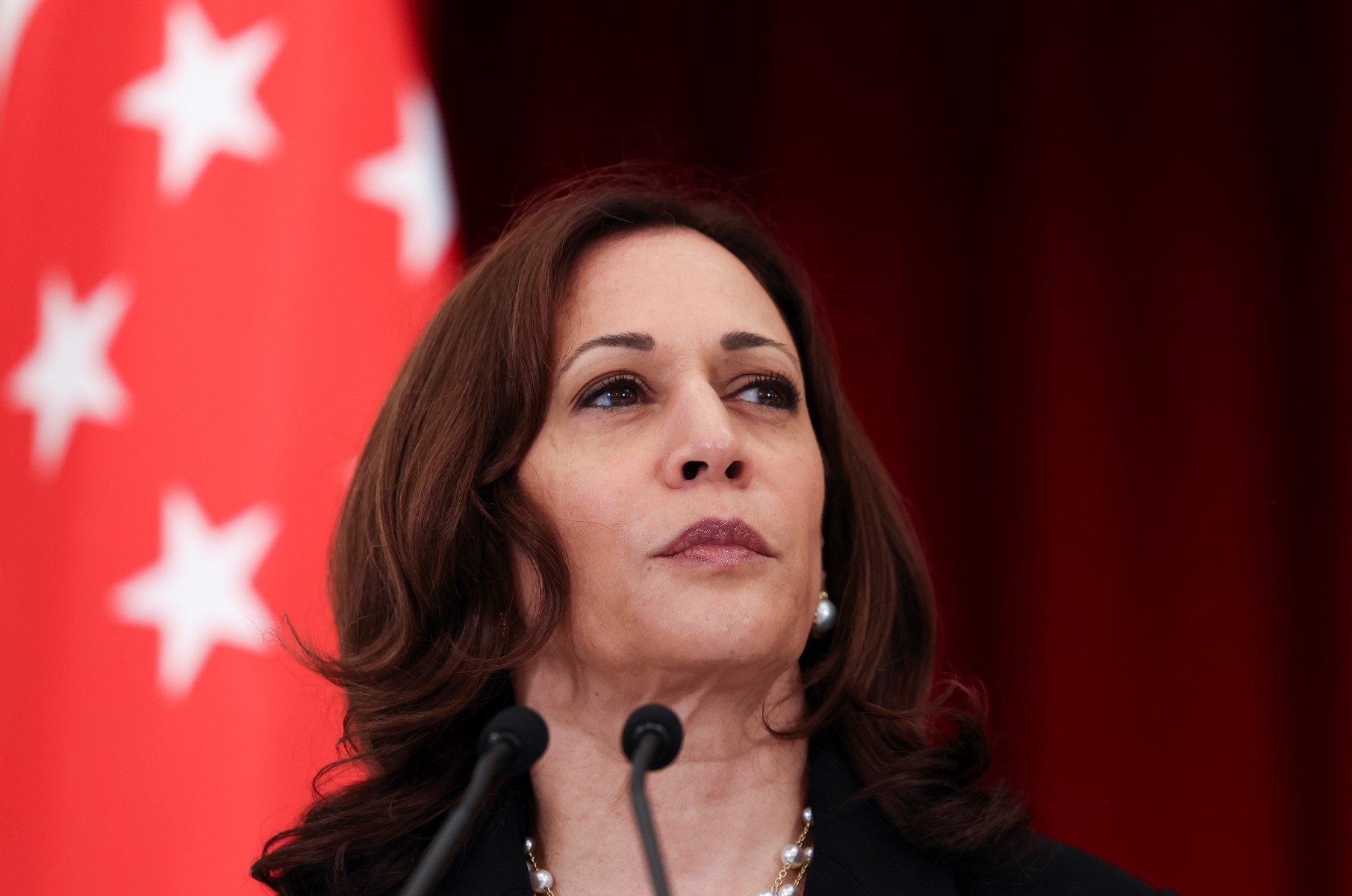Survey reveals Kamala Harris as the game-changer for U.S.-Asia relations

A recent survey conducted by the Gallup International Association across 43 countries has unveiled a fascinating insight into global perspectives on the upcoming U.S. presidential election.
The poll indicates that 54% of respondents would vote for Kamala Harris, compared to just 26% for Donald Trump. However, the anticipated election outcome appears much closer, with 47% believing Harris will emerge victorious, while 34% predict a win for Trump, leaving 19% uncertain.
This uncertainty raises concerns, as a significant 67% of participants in the survey feel that the results of the American election will have a “very high/high” impact on their own countries.
A Harris presidency can enhance US global standing
The survey, which engaged nearly 41,000 adults, suggests that a Harris presidency could enhance the United States’ global standing, with 38% supporting this view.
In contrast, only 19% believe Trump would contribute positively, with nearly half (48%) fearing his leadership could lead to a decline in America’s reputation.
In an era marked by global instability, the potential implications of each candidate are critical. The survey indicates that 32% believe a President Harris would foster stability, while 49% fear Trump could undermine it.
Furthermore, a majority of 59% would urge the American leader to increase support for Ukraine or maintain current levels of assistance.
Regional preferences illustrate a stark divide
Harris enjoys significant support in Latin America and Western Europe, while Trump resonates more in Eastern Europe and Southeast Asia. Notably, in Russia, where public opinion is particularly revealing, 43% favor Trump, compared to just 12% for Harris.
Support for Harris peaks in Denmark, where an impressive 85% of respondents would vote for her. Finland follows closely with 82%, while Sweden and Norway both see 81% support. On the other hand, Trump finds his strongest backing in Serbia (59%), followed by Hungary (49%), Bulgaria (49%), and Kazakhstan (44%).
Gallup International president Michael Nitsche commented on the findings: “A significant part of the world shows a clear preference for Kamala Harris. A victory for her could enhance America’s standing globally and contribute to improving worldwide stability. However, the expected result of next week’s election remains uncertain, with less than half (47%) anticipating her win.”
In Asia
In a report published by The Straits Times, Malaysia’s Deputy Investment, Trade, and Industry Minister Liew Chin Tong aptly noted that the distinction between a potential Vice President Kamala Harris administration and a second term for Donald Trump is not about the direction of U.S. foreign policy but rather its intensity.
In an era where the unipolar world of the past is gone for good, both leaders face the challenge of navigating complex global dynamics.
Trump’s approach, characterized by an “America First” isolationism, contrasts sharply with Harris’s likely emphasis on global engagement.
However, Liew suggests that neither leader will be able to return to the optimism of the mid-1990s, the era when the World Trade Organization (WTO) was established with hopes of reducing trade barriers and fostering global trade.
In the absence of a significant crisis, Southeast Asian countries may brace themselves for a “Trump 2.0” scenario, albeit with some reluctance.
Greg Poling of the Center for Strategic and International Studies in Washington points out that regional leaders are prepared to engage with whichever candidate emerges victorious in the upcoming election.
Diplomatic hopes for the future
The Chinese Embassy in Washington has expressed a desire for strong ties, regardless of the election outcome. In a light-hearted statement, the embassy highlighted the arrival of two pandas as a potential catalyst for improving U.S.-China relations, underlining their commitment to fostering exchanges.
However, opinions in Beijing reveal a nuanced preference for Harris.
Scholars engaged in Track 2 diplomacy hint at a belief that Harris would continue Biden’s policy of engagement, while a Trump presidency could lead to a deterioration in people-to-people exchanges.
According to Professor Jia Qingguo from Peking University and Professor Chen Dongxiao of the Shanghai Institutes for International Studies, the current tensions might only worsen under Trump.
On the other hand, Tsinghua University’s Professor Da Wei notes that while policy continuity may seem reassuring, it might perpetuate existing strains.
Interestingly, he suggests that Trump could inadvertently benefit China if his tariffs lead to a point where the U.S. economy struggles, potentially creating new opportunities for Beijing.
If Trump were to withdraw U.S. support from Ukraine or back away from NATO commitments, a power vacuum could emerge in Europe, which China might seek to exploit through increased diplomatic and economic engagement.
Enjoying this article?
Subscribe to get more stories like this delivered to your inbox.
Some even humorously refer to Trump as “Chuan Jian Guo,” or “Trump the Nation Builder,” with the implication that his policies may inadvertently strengthen China’s global position.
Poling predicts that Trump may engage in attention-grabbing yet superficial diplomatic gestures, similar to those seen during his first term.
However, he cautions that this approach would ultimately be unsustainable, given Trump’s focus on outmanoeuvring China economically.
In contrast, Harris is likely to build on the alliances fostered during the Biden administration, including the recent trilateral summit with Japan and South Korea and the strategic Quad alliance comprising the U.S., Japan, India, and Australia.
Professor Satoru Mori from Keio University emphasizes that while there are concerns about Trump potentially undermining these frameworks, many were originally established during his presidency.
Outside of East Asia, nations like India and the Philippines appear more optimistic about their futures with the U.S., regardless of who occupies the White House.
Philippine Ambassador to the U.S. Jose Manuel Romualdez expresses confidence that Harris would continue to uphold commitments made under Biden to support the Philippines against aggressive actions in the South China Sea.
He acknowledges that while Trump might not prioritize alliance networks, his administration could adopt a more forceful stance against China. Poling remains skeptical, however, suggesting that in a crisis, the credibility of Trump’s commitments to allies would be called into question.
